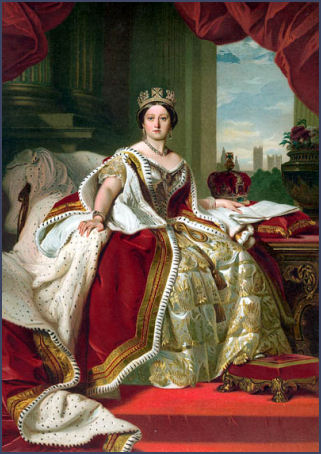introduction

The Victorian period formally begins in 1837 (the year Victoria became Queen) and ends in 1901 (the year of her death). As a matter of expediency, these dates are sometimes modified slightly. 1830 is usually considered the end of the Romantic period in Britain, and thus makes a convenient starting date for Victorianism. Similarly, since Queen Victoria’s death occurred so soon in the beginning of a new century, the end of the previous century provides a useful closing date for the period.
The common perception of the period is the Victorians are “prudish, hypocritical, stuffy, [and] narrow-minded” This perception is (as most periodic generalizations are) not universally accurate, and it is thus a grievous error to jump to the conclusion that a writer or artist fits that description merely because he or she wrote during the mid to late 19th century. However, it is also true that this description applies to some large segments of Victorian English society, particularly amongst the middle-class, which at the time was increasing both in number and power. Many members of this middle-class aspired to join the ranks of the nobles, and felt that acting “properly,” according to the conventions and values of the time, was an important step in that direction.
Another important aspect of this period is the large-scale expansion of British imperial power. By 1830, the British empire had, of course, existed for centuries, and had already experienced many boons and setbacks. Perhaps the most significant blow to its power occurred in the late 18th century with the successful revolt of its 13 American colonies, an event which would eventually result in the formation of the United States as we now know it. During the 19th century, the British empire extensively expanded its colonial presence in many parts of Africa, in India, in the middle-east and in other parts of Asia. This process has had many long-term effects, including the increased use of the English language outside of Europe and increased trade between Europe and distant regions. It also, of course, produced some long-standing animosity in colonized regions.